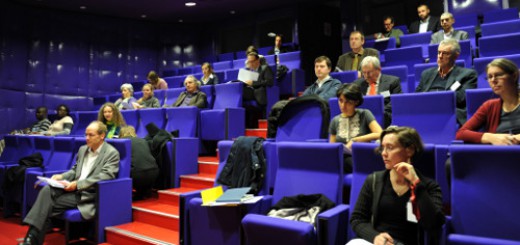Lecture: ‘Quelles limites à la liberté d’expression ?’ – 05/01/2016, Nantes
The recording of this lecture is now available in IPRA’s resource center, at the following address: http://ipra.eu/centre-ressources/en/items/show/10
Valentine Zuber’s lecture “Quelles limites à la liberté d’expression ? La laïcité et la sauvegarde de la liberté religieuse.” (What boundaries for the freedom of speech? Secularism and the preservation of religious freedom), organized by the Labo Utile with the collaboration of the IPRA, will be held at the Lieu Unique, in Nantes, on Tuesday 5th of January 2016, at 6.30 pm. Please note that this lecture will be held in French.
Summary: The lecture will go throught the long history of the legislation – both national and international – aiming to defend the freedom of speech for individuals and for groups.This legislation implies that, at well as the freedom of speech, the freedom of religion is protected, both at an individual and collective level. Freedom of religion can only be effectively guaranteed if the secularism of national or international institutions is real. But the request made in recent years by several countries for the establishment by the UN of an international law against blasphemy has questioned the presupposed religious and philosophical neutrality of international organizations. It is this debate, involving two opposed points of view as to where to set boundaries to the freedom of speech, that this lecture wish to explore.
Valentine Zuber is Director of the sudies at the École Pratique des Hautes Études, in Paris, and its ‘religions and international relations’ chairwoman.
She is a specialist of the history of religious acceptance in Europe from the 16th to the 21rst century. She has especially worked on the history of secularism and on the intellectual origins of the human rights. She is currently studying the paradox arising from the defense of religious freedom in the context of the human rights universalization.
She published, among other books: Le culte des droits de l’homme (Gallimard, 2014) ; Les Conflits de la tolérance, Michel Servet entre mémoire et histoire (XIXe- XXe s.) (Honoré Champion, 2004) ; with Jean Baubérot, Une haine oubliée. L’antiprotestantisme avant le pacte laïque (1870-1905) (Albin Michel, 2000, prix Eugène Colas de l’Académie française).
She also directed: With Jacques Huntzinger and Marjorie Moya, Laïcités et sociétés en Méditerranée (Collège des Bernardins, Lethielleux, 2012) ; With Jacques Potin, Dictionnaire des monothéismes ( Bayard, 2003) ; With Fabienne Randaxhe., Laïcités-démocraties, des relations ambiguës, (Brepols, Bibliothèque de l’EPHE, section des sciences religieuses, 2003).
Practical information:
- Date: Tuesday, 5th of January 2016, 6.30pm
- Place: Le lieu unique (Quai Ferdinand-Favre, Nantes, France)
- Free entry
- Webpage of the event (in French): http://www.lelieuunique.com/site/2015/10/15/questions-de-societe-3/
Poster:
Image : Déclaration des droits de l’homme et du citoyen, Le Barbier (source : Wikipédia)






